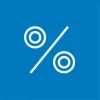In this guide, we explain the basic terms you are likely to come across when organizing your personal finances.
1. ZEK and IKO
The ZEK (Zentralstelle für Kreditinformation) and the IKO (Informationsstelle für Konsumkredite) are federally-mandated consumer credit bureaus. Unlike credit bureaus in many other countries, they only record nuetral and negative credit information (not positive information).
2. Debt collection office (Betreibungsamt/Office de poursuites)
In Switzerland, when you fail to meet a payment, your creditor can report the debt to your municipal debt collection office. This office records debt claims in a debt collection register. These offices are similar to credit bureaus, but are run by municipal governments as a public service.
3. OASI (AHV/AVS)
Old Age and Survivors Insurance (OASI) is a basic social security old age pension scheme which all residents must participate in. The OASI is the Swiss equivalent of the government pension funds found in some countries.
4. DI (IV/AI)
As with the OASI, joining the Disability Insurance (DI) social security scheme is mandatory for all residents of Switzerland. This scheme provides a basic disability pension for all residents of Switzerland regardless of their employment status.
5. Pillar 2, Occupational pension funds and vested benefits
In Switzerland, the term pillar 2 refers to Swiss occupational pension fund benefits and to vested benefits. If you are insured by the OASI scheme, are employed, and your annual income exceeds the official threshold (in 2019 the threshold is 21,330 Swiss francs) you are required to participate in your employer’s occupational pension fund. Contributions are jointly-funded by you and your employer, with your employer covering at least half of contributions. If you become unemployed or leave Switzerland, you can transfer your pension fund benefits to a vested benefits account. Vested benefits are pension fund benefits which are held in escrow by a vested benefits foundation until you either join another Swiss occupational pension fund again or reach retirement age.
6. Pillar 3a
This is a tax-privileged category for voluntary private retirement savings. Annual limits (different for employees and self-employed persons) apply to pillar 3a savings. Assets are held in escrow by retirement foundations until you either reach legal retirement age or meet criteria to withdraw assets early. Assets can be placed in and transferred between pillar 3a retirement accounts, pillar 3a cash-value life insurance policies and pillar 3a retirement funds. Read the guide to using the pillar 3a for detailed information.
7. Employer-based accident insurance (UV/AA)
Accident insurance is mandatory in Switzerland. If you are employed, your employer has to take out occupational accident insurance for you and pay the premium. You have to take out non-occupational accident insurance from your employer’s accident insurance provider and pay the premium for it. If you are unemployed or self-employed, you must get insured through your compulsory health insurance policy. Read the guide to Swiss accident insurance for detailed information.
8. Withholding tax
The terms withholding tax and tax at source denote a system in which taxes are deducted directly off your salary by your Swiss employer. You pay income and wealth taxes this way if you work in Switzerland but do not hold a C permit, are not married to a Swiss citizen or permanent resident, and do not own property. Find detailed information in the guide to the Swiss tax at source for expats and cross-border workers.
9. Tax returns (Steuererklärung/déclaration d’impôts)
Swiss citizens and permanent residents are required to file tax returns. You also have to file a tax return if you own property in Switzerland. A tax return is a document in which you declare your income and assets, and claim tax deductions.
10. Medium-term notes
Medium-term notes are securitized debt claims issued by banks – much like bank bonds and certificates of deposit. In Switzerland, medium-term notes are widely-used in place of fixed deposits. Because medium-term notes are securities, they must be held in a custody account like stocks and bonds. Read the guide to Swiss medium-term notes vs. fixed deposits for the details.
More on this topic:
Swiss pillar 3a retirement account comparison
Swiss medium-term note and fixed deposit comparison
Swiss household insurance comparison










